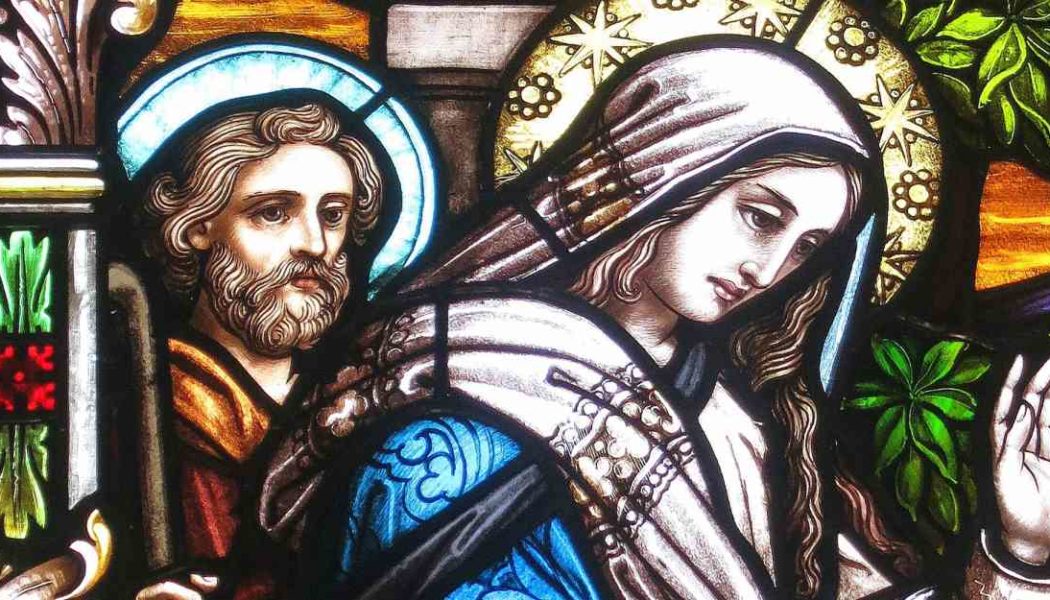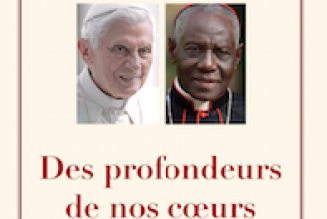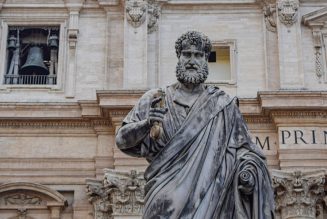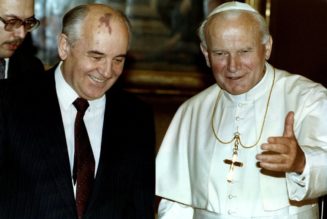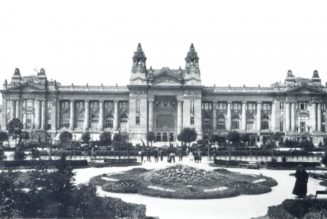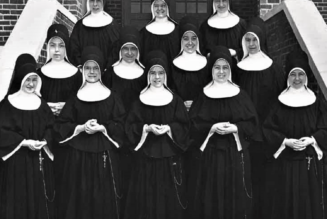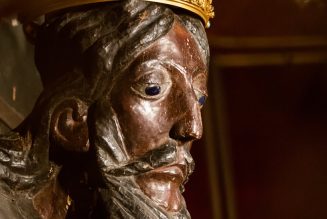
This Sunday is the Fourth Sunday of Advent Year C and each year when we face the last stretch before Christmas, the Church’s focus shifts to Our Lady.
For children, the week before Christmas is a time of unbearable anticipation. For adults it’s a time of intense preparation. Holiday travel makes life harder on both of them.
For Mary, it was all of that, only worse. No one ever anticipated Christmas more, had more to prepare, or more stressful travel to endure than the woman who did it all for the Son of God for the first time.
First: The Church’s readings are plainly suggesting that we should approach this difficult time like Our Lady did.
The Gospel tells the story of the Visitation, and we find Mary not just away from home serving her extended family, but bringing peace and joy to Elizabeth through her connection with Christ.
This is the mode we often see Mary in: on the move, bringing people to Christ by bringing Christ to people. When Christmas comes, she will be away from home again, an oasis of peace in the busyness of Bethlehem and an island of light in the darkness of the ancient world — but in the Extraordinary Story of Jesus’s life she does the same thing at Cana, on the road, at the cross, at Pentecost and then throughout Church history in apparitions from Lourdes to Guadalupe.
This Sunday, though, she brings the unborn Jesus to the expectant Elizabeth, and we see what the result is: Elizabeth is filled with the Holy Spirit and joy, and even her unborn child is graced.
Under the influence of the Holy Spirit, Elizabeth sums up what makes Mary great: “Blessed are you who believed that what was spoken to you by the Lord would be fulfilled.”
As we spend one last week with the pre-Christmas, preborn Jesus we can follow the same formula of faith.
Second: But the readings also spell out just how difficult this was in Mary’s world.
On the one hand, it seems like it should be easy for Mary to “believe what has been spoken.” After all, in the First Reading, we hear the prophet Micah say:
“From you [Bethlehem] shall come forth for me one who is to be ruler in Israel, whose origin is from of old, from ancient times. … He shall stand firm and shepherd his flock by the strength of the Lord.”
This is more than just an intriguing ancient message that you can read as foreshadowing of Jesus’s birth. This is God promising his people in exile, when life looked bleakest, that he was indeed still their God, still all-powerful, still in charge of history. The God who promised Abraham that his descendants would number like the stars, and who promised David that his kingdom was forever, was assuring them that the promise still held: He would still come and lead them to victory.
But the evidence weighed heavily against the claim.
Micah’s book of the Bible begins with a scathing summing up of his times, calling his nation “unclean” and complaining that its people “hate what is good and love evil.” In fact, he decides that their “wound is incurable.”
He is right: The wound of original sin is incurable and it was as obvious to people then as it is today:
Evil, not good, is in control of much of the world. There is too much suffering and failure and sin to believe otherwise. Everything we do to defeat unrest and evil in the world fails. Law enforcement officers and case workers can tell you stories that would make it hard to sleep in your neighborhood, wherever you live. The good intentions of the school system haven’t made the population more tolerant and peaceful — because nothing on earth can conquer original sin.
The First Reading from Micah names the one thing that can conquer it when it says: “His greatness shall reach to the ends of the earth; he shall be peace.”
Third, we know what Mary knew: life without Jesus is frightening. But life with Jesus is beautiful.
We have all experienced the unbearable absence of Christ in the world. We have been there ourselves or see loved ones there now. All our attempts to relieve the darkness frustrate and disappoint us. Pleasures, purchases and praise; sex, success and substances — everything we use to light up the night is like a cardboard match that barely dispels the gloom for a moment, then burns us, leaving us in back in darkness, but in pain.
The Second Reading from Hebrews says that God knew just how desperate we are: We would kill our best animals as offerings to him and set them on fire to try to light up our world. God let us do that, to teach us sacrifice and to help us learn the hard way that it wouldn’t work. Then he came to join us, saying:
“In holocausts and sin offerings you took no delight. Then I said, ‘As is written of me in the scroll, behold, I come to do your will, O God.’”
The Psalm spells out exactly what we want from Jesus, now that he has joined our world.
“Lord, make us turn to you; let us see your face and we shall be saved,” we pray. We ask that God “Rouse your power and come to save us,” that he “take care of this vine, and protect what your right hand has planted;” and we pray that he “give us new life.”
Fourth: It’s that “give us new life” part that Mary fulfills.
“When Elizabeth heard Mary’s greeting, the infant leaped in her womb,” says the Gospel.
Then Elizabeth tells her, “Blessed are you among women, and blessed is the fruit of your womb. And how does this happen to me, that the mother of my Lord should come to me?”
Mary’s special gift is to make ordinary people into prophets by gracing us her presence, and bringing us to recognize her son.
Elizabeth was “touched with the spirit of prophecy,” said St. Gregory the Great. “She knew that Mary had believed the promises of the Angel; she perceived when she gave her the name of mother, that Mary was carrying in her womb the Redeemer of mankind; and when she foretold that all things would be accomplished, she saw also what was as to follow in the future.”
St. Ambrose said the same thing happens to each of us.
“You are also blessed who have heard and believed,” he said. “For a soul that has believed has both conceived and bears the Word of God and declares his works. Let the soul of Mary be in each of you, so that it magnifies the Lord. Let the spirit of Mary be in each of you, so that it rejoices in God. She is the one mother of Christ according to the flesh, yet Christ is the Fruit of all according to faith. Every soul receives the Word of God, provided that, undefiled and unstained by vices, it guards its purity with inviolate modesty.”
Fifth: Communion makes our last week of Advent even more like Mary’s.
Blessed is Mary who believed the angel who told her “the Lord is with thee,” and then made Jesus present within her. Blessed are Elizabeth and the unborn John the Baptist who were riveted by the presence of God, unseen, within Mary.
And blessed are we who believe what the Second Reading says, that “we have been consecrated through the offering of the body of Jesus Christ once for all.” That body of Jesus Christ that was offered once and for all is as truly present in the Blessed Sacrament as it was in the body of Mary when she traveled far from home.
And soon, we will step forward in line to receive Jesus Christ and make him present in our own lives as well. The more we let him bend our lives to his will, the brighter the world will be.
For now, we wait for Jesus’s coming at Christmas with Mary’s eagerness, ready to greet him with Elizabeth’s joy. The crèche won’t be empty much longer, and the whole world won’t be away from God for much longer, either, if we, like them, become who God made us to be.
Image: wiki-media commons
